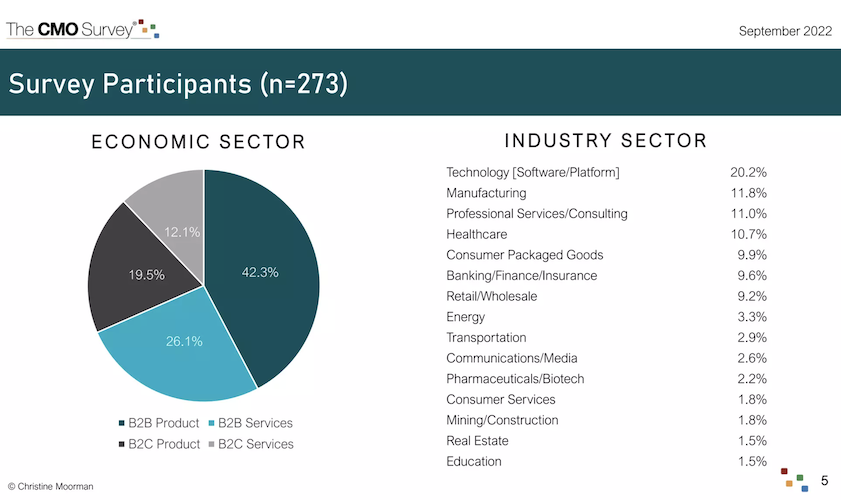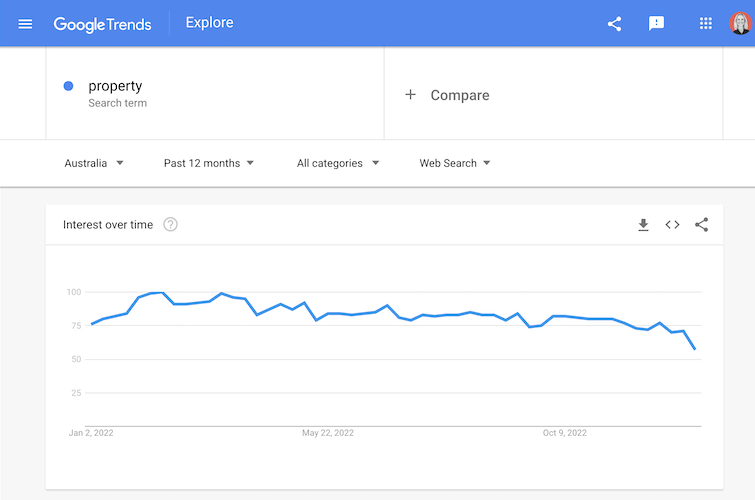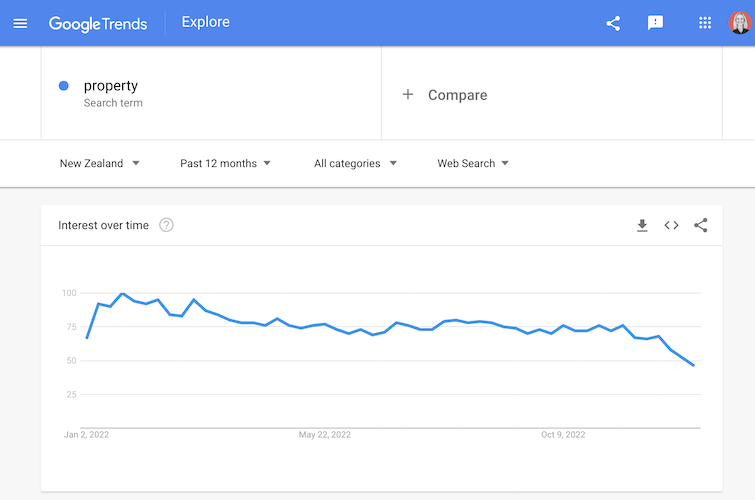“What’s the magic bullet to generating leads?” Asked every business owner.
As we start a new year and reevaluate how we could grow our client base and increase our business revenue, the obvious question is, “How do I attract more clients to my real estate agency with less effort and cost?”
I’m in a fortunate position. I manage brand marketing programs for a multitude of real estate agency owners and individual agents and spend my 9 to 5 hours watching, reviewing and learning what works (and doesn’t work).
Is there a single marketing activity you can do to generate a steady stream of enquiries? No.
Is there a top 10 list of things to focus on to grow your visibility and brand reputation? Yes.
Following are 10 commandments, aka the top 10 digital marketing principles for building a highly successful real estate business.
1 – Thou shalt have a marketing mindset
You are not a fully-fledged business owner until you are willing to spend money before you make money. What I am referring to is your willingness to take a calculated risk, back your business, put your money where your mouth is, and promote yourself.
In the real estate industry, you can transition from a salaried employee to a commission-only agent and have the real estate agency owner foot the bill and take the risk on your behalf. I.e. you are given credit to invest in promotional activities, and you only pay your boss back if/when you generate revenue. Funds in advance are a great way to get your business off the starting block, but you can only rely on this scenario for a while. Eventually, you have to stand on your own two feet.
Hence, the number one challenge you have to face, or task you have to complete, is to decide how much money you want to make and, therefore, what you need to spend on marketing your real estate business.
The stumbling block in real estate is that, as a salesperson, many people believe talking to people is the best way to generate business. I.e. cold calling. But call screening helps prospects avoid being interrupted. So rather than focus on cold calls, focus on fostering warm inbound calls from people ready to engage the services of a real estate agent. That’s a much more pleasant experience for you and your future client!
According to the CMO Survey published in November 2022, real estate businesses sat at the bottom of the scale, having spent, on average, 1.5% of their revenue on marketing per annum. In contrast, other professional services spent 11%. And the highest spender was Tech (software platforms), which spent 20% of its revenue on brand marketing.
With the real estate industry experiencing a boom from 2020 to early 2022, riding on the back of low-interest rates, more accessible lending, and government housing incentives, it’s no wonder real estate marketing spending was so low. Add in the fact that sales agents promote themselves in every listing and therefore piggyback on their client’s campaigns; it’s easy to see why real estate is at the bottom of the CMO Survey.

If we pick the midpoint between the real estate industry’s average marketing spend and that of other services industries, this is what your annual real estate brand marketing budget should be;
- A marketing budget of $31,250 (6.25%) to earn an income of $500,000.
- A marketing budget of $62,500 (6.25%) to earn an income of $1,000,000.
- A marketing budget of $125,000 (6.25%) to earn an income of $2,000,000.
As we head into a more normal real estate market, you can calculate your marketing budget as 6.25% of the revenue you would like to earn this year. And if you think this figure is high, then you are still in the employee mindset rather than the business owner or entrepreneur mindset.
2 – Thou shalt build a list
If only I’d appreciated how vital building a contact list was when I started my business.
Most real estate professionals associate contact lists with CRMs and email campaigns. You may not be aware, but you can upload your contact list to all your digital advertising accounts; Google Ads, Meta Ads, LinkedIn Ads and so forth. You can then run ads that ensure you pop up in front of your contacts multiple times across numerous channels —making it impossible to miss your marketing messages.
If you’re a real estate sales agent, a good rule of thumb is to have a contact database that equals the number of residents across the neighbourhoods you service. Suppose you are a buyer’s agent or property manager, your list of prospective clients (home buyers and landlords) might not be as extensive as a sales agent’s, so focus on quality over quantity and vet people as they get added to your database.
3 – Thou shalt create lead magnets
The easiest way to grow a real estate database is through open homes. But community events, information evenings and giveaways are other great strategies to encourage people to share their contact details.
As a real estate sales agent, you could produce a guide to selling a home that outlines all the milestones in a property transaction from a home seller’s perspective. Or produce a quarterly report that includes stats on property market trends and forecasts, including local sold prices across different property types and neighbourhoods. You might also run information evenings for downsizers with local retirement villages.
As a buyer’s agent, you might produce a guide to buying a home that lists all the milestones in a property transaction from a home buyer’s perspective. Or produce a quarterly report that includes stats on lending rates and sold prices across different property types and neighbourhoods. Or webinars for property investors.
As a property manager, you could produce a guide to leasing a home that outlines all the milestones from a landlord’s perspective. Create a private directory of tradespeople for the local area with a calendar with suggested building and garden maintenance dates. You could produce a quarterly report that includes stats on property market trends and forecasts, including property values, and highlight any changes to regulations or legislation alongside a landlord’s responsibilities.
As a commercial real estate agent, you might produce a guide to selling or leasing a commercial asset that lists all the milestones in a transaction from a property investor or business owner’s perspective. You could produce a quarterly report that includes stats on the commercial property market, trends and forecasts, commercial property values by asset class, and highlight any changes to regulations or legislation or government investment in a region. You could produce a business directory if you focus on a micro market.

4 – Thou shalt build landing, lead and funnel pages
Whatever report, webinar, event or information evening you organise, ensure that people must register and provide their contact details in exchange for the link to your insights.
A great way to promote and capture contact details is through a landing page or lead page built as part of a marketing funnel. Landing pages are a single web page that people “land on” when they click on an ad or social post, enabling you to capture “leads” – hence the names. The page content talks only about the lead magnet (guide/report/event) you are promoting and encourages people to sign up. There is a form on the page for collecting a person’s contact details.
It’s best to send people further information via email, as this ensures the recipient has given you their actual contact details rather than a fake profile. You can also include a second page after the form has been submitted that upsells other services, such as booking a time to chat with you or a property appraisal.
You do not need a real estate website to create landing pages. And in fact, many real estate websites do not include landing or lead pages. Numerous marketing platforms enable you to create landing pages quickly. Landing and lead pages are part of a bigger-picture marketing tool, a marketing funnel, so you’ll need a qualified and experienced marketing team to assist with all the components.
5 – Thou shalt do social media advertising
Social media marketing is the best way to build awareness and ensure that 100% of people in your neighbourhood or region have heard of you.
People across Australia and New Zealand spend, on average, 2 hours a day on social platforms, that’s 14 hours a week and 60 hours a month; hence it’s a great way to catch their attention. But you have to advertise. Organic posts just don’t cut it.
The number one social media platform is Meta because it encompasses Facebook, Instagram, Messenger and Whatsapp, giving you numerous opportunities to get your name and brand front and centre. Meta has the most people (or eyeballs), with 76.8% of the Australian population and 74.8% of the New Zealand population accessing the Meta social apps each month.
The social platform most overlooked is Youtube. It’s the go-to for videos, particularly the “How to” type. Plus, it’s where most property people house their property videos and real estate investor webinars. In 2022, Youtube was used by 82.2% of Australians and 85.9% of Kiwis.
LinkedIn advertising is an excellent way for commercial agents to get their messages in front of white-collar asset managers, architects, developers and business owners, as you can segment and target ad audiences by industry.
Instagram and Tiktok are the newer kids on the block. Although they continue to gain popularity with adults, they currently only have around 1/3rd of the Australian and New Zealand populations as users.
Remember my insights from number 2 above; you can upload your contact lists to all the social ad platforms to ensure people from your CRM see you as often as possible.
6 – Thou shalt research keywords and search phrases
Once you know whom to target, you must understand their online search behaviour. What keywords and phrases do people type into Google search (or Bing) when they intend to find something? After all, someone planning to learn more or take action is your hottest lead! Marketers call this “intent”.
You can find out whether property or real estate are hot topics right now from Google Trends. My recent search revealed that interest in the New Zealand property market waned by 49% by the end of 2022, and in Australia, the care factor fell by 43%. As prices declined, so did the excitement of looking up the value of your real estate assets!


You can research and monitor what keywords and phrases are used in search queries using the following tools;
Grab a 30-day free trial of the Moz Keyword Explorer for the best comprehensive research tool, as it offers organic and paid insights.
Register an account with Google Ads at ads.google.com and use the Keyword Planner to search for paid keywords.
Get 7 days free with SEM Rush, the tool of choice by advanced SEO practitioners.
Try out Neil Patel’s Uber Suggest. Or Ahref’s Keyword Generator. Or Similarweb’s keyword research and analysis tools.
These should keep you busy!
The more you know about what people ask Google, the better you can get at creating content for your website that is easily found and generating paid ad campaigns that strike a chord with your prospects.
7 – Thou shalt run Google ads
Once you know what things people with interest in real estate “ask Google”, you can circumvent the need to create a website that is so big that people can’t avoid landing on your real estate website (like REA) by running ads.
With Google ads, your website traffic can be more targeted. Running Google ads allows you to focus on people in a specific geographic region, whereas organic web searches bring people to your real estate website from anywhere worldwide.
The Customer Match tool within Google Ads also allows you to upload your contact list and show ads to people who have shared their contact details (another reminder of step 2, list building and its importance).
And once again, if you still need to get a real estate website of your own, you can use landing pages and build a marketing funnel.
8 – Thou shalt build a real estate website
Congratulations if you have completed the steps above – one through seven – without investing in a real estate website.
Most property people would have paid for a real estate CRM or templated website by now (which is like building the cart before investing in the horse to pull it).
Please be aware that most real estate websites do not include the features you need for brand marketing and paid advertising campaigns – they are brochure sites designed to list properties, not generate leads.
If you follow my steps above, you can survive without investing in an entire real estate website and successfully grow your real estate business with the help of marketing platforms that offer landing pages.
However, if you plan on being in business for several years and follow these commandments to step 8, I recommend investing in a custom real estate website you own outright. A website that integrates with the best-of-breed marketing tools and allows for custom enhancements in the future.
At Hoole.co we have a team of website specialists that build unique, customised real estate websites with all the marketing smarts to ensure it’s an effective tool in your marketing arsenal. So when you are ready for a website, give us a call!

9 – Thou shalt learn Search Engine Optimisation SEO
The beauty of having your own real estate website is that you can establish a digital shopfront and grow your online presence over time.
Search engine optimisation (SEO) is the match-making process between the ‘question someone asks Google’ and the website that Google suggests is the ‘best source of information or best service provider’.
If you have a website that has more than 100 pages and is updated with fresh content every week, you’ll be off to a great start. It would help if you also had individual pages that are beautifully written with a minimum of 2000+ words. Your website copy must include the search terms or phrases your audience frequently types into the Google search bar. Even better, if you can get other websites to feature you and send people from their website to yours, you stand a strong chance of showing up on Page #1 of Google Search Results.
Many people need to realise that Google Ads perform best when the landing page is part of a website with a strong authority score. SEO is the checklist that helps you build a high-quality website. Adhere to the principles and focus on your authority score, and more people will find you naturally (rather than via an ad).
Moz is the company behind the tool that helps you rank your website against your competitors. You can learn more about the Moz Domain Authority Score on their website, and if you scroll down their page, there’s a video that makes the concept easy to understand.
10 – Thou shalt produce quality content
Marketing and advertising are only possible with great content. Building a brand requires a team of professionals that know how to produce;
- Enticing marketing messages
- Convincing copy
- Imagery that helps tell the story
- Graphic and web design that packages everything beautifully
Property marketing is generally a short campaign that lasts for 3 to 6 weeks. The format is very standardised, the output follows a formula, and the creativity is limited. Your job as a real estate agent is to present a property in its best light and ensure a large number of prospects see it.
Brand marketing, however, is very different, as it’s primarily an ‘always on’ campaign. The messages or look and feel should be unique and personalised to the real estate business and its people. We all know that people choose to work with people they feel they’ve got to know, like and trust. Your marketing content should include a face of the business, whether a principal, company director, sales or business development professional.
Engage qualified creatives to manage your real estate brand and marketing activities. That way, you’ll look and sound professional. Your creative team will achieve more with less time and lower budgets. They’ll run your marketing and advertising the right way and will optimise your ad budgets – i.e. you won’t pay more than needed to bring prospects to your door. You can then focus on what you do best – selling leads your services.
Engage expert real estate marketers
If you’d like a team of experienced real estate branding professionals to formulate a marketing strategy, allocate your budget and help you grow your business, book a free one-hour consultation with me, Melanie Hoole. It’s always a pleasure for me to get to know you!

Join the Conversation - add your thoughts